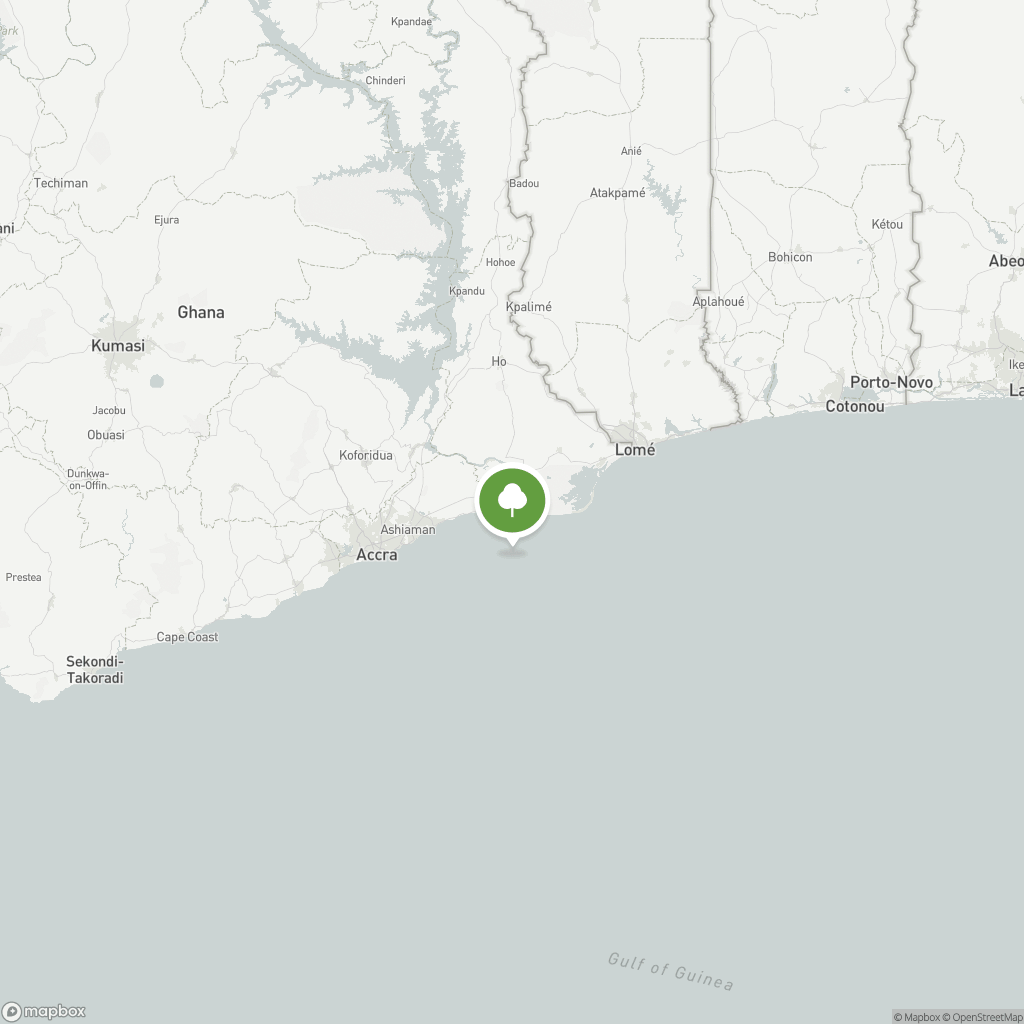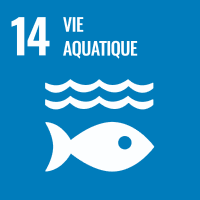Volta Delta - Songhor Region - Ghana
Mangrove
Reforest'Action has joined forces with Seawater Solutions (SwS) to carry out a coastal ecosystem restoration project in south-eastern Ghana.

In Ghana, mangrove cutting and timber trading as a source of income are endangering coastal ecosystems and their biodiversity, including sea turtles and numerous bird species. As a result of mangrove cutting, soil salinization is increasing, while the availability of fresh water is decreasing, which has a negative impact on agricultural activities, particularly fishing. Fish stocks are disappearing along with the mangroves, putting fishing communities at risk.
The project financed by Reforest'Action and implemented in the field by the Seawater Solutions company takes root on former mangrove forests replaced by salt mining facilities, whose activity has since ceased. These lands have been severely affected by increasing salinization accompanied by the disappearance of plant and animal biodiversity. As natural regeneration is very limited, without intervention to restore the ecosystem, the wetlands' productivity is likely to reach zero, and the fishing communities to lose their primary means of subsistence. In addition, the rate of coastal erosion is accelerating due to mangrove deforestation, thus posing a critical threat to indigenous populations. The Gas are the main ethnic group in the Volta Delta region, and they play a major cultural role within the project area. Among this group, communities are fragmented into many different clans and families, resulting in significant fragmentation of land use.
The project is based on a holistic approach that aims to regenerate coastal ecosystems, control soil erosion, restore biodiversity, ensure sustainable management of coastal resources and reduce non-sustainable agricultural practices.
As a first step, the project made it possible to plant 120,691 mangrove trees of three distinct species (red, white and black mangroves) on the Songhor and Keta sites. These three mangrove species were chosen for their ability to support the regeneration of remaining mangroves, and to create habitats for biodiversity. More than 50 planters (mainly women) have been hired and mobilized as part of this activity.
On the socio-economic level, the project will aim to shift the income traditionally generated by mangrove cutting and salt extraction towards more sustainable activities. Local villagers involved in nursery preparation, tree planting and maintenance will also receive training in sustainable mangrove harvesting methods, as well as in the creation of community resource management cooperatives. In addition, some of the mangroves will be used to support bee populations and honey production. To this end, some community members will be trained in the practice of beekeeping.
Our partner Seawater Solutions specializes in Regenerative Seawater Agriculture (RAS), enabling the production of a wide range of high-value bioproducts (halophyte plants, shrimps, fish, honey, wood, etc.) using a marine silvo-aquaculture model that combines mangrove management with sustainable agricultural practices. This new system will help create sustainable livelihoods for the local farming populations.
The communities of Pude and Fiaxor have been mobilized through awareness-raising sessions on environmental degradation and the importance of mangroves for human and environmental health. The project also attaches great importance to the use of local expertise, based on the knowledge of the Ga ethnic group.

Seawater Solutions was founded in 2017 with the aim of rehabilitating wetland ecosystems and strengthening people's resilience and ability to combat climate change. In response to the issues of land salinization, soil erosion and declining livelihoods faced by coastal communities, Yanik Nyberg and Nicholas Shell, the co-founders of Seawater Solutions, have developed the Seawater Regenerative Agriculture system. Based on the introduction of salt-tolerant species on degraded land, this solution aims to recreate a healthy, productive ecosystem.



